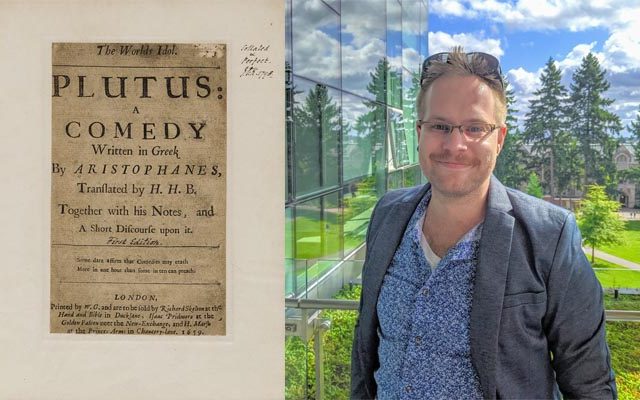
Date/Time
Friday, March 5, 2021
4:00 pm PST – 5:15 pm PST
Presented by Shadow Zimmerman, University of Washington
Hosted by Bronwen Wilson, Center & Clark Director, Professor of Art History, UCLA
Respondents:
Johanna Drucker, Professor of Information Studies, UCLA
Muriel McClendon, Professor of History, UCLA
Claire McEachern, Professor of English, UCLA
This event is free of charge, but you must register to attend in advance. All audience members will receive instructions via email after registration. Click the following link to register directly with Zoom: https://ucla.zoom.us/meeting/register/tJIrf-ugpj4tHtTtTvkBVwefDR1iuXJqsg_s
As part of our ongoing effort to sustain intellectual community and enable scholarly exchange, and in order to support and encourage the work many of us are doing in a range of public forums during this unprecedented time, the UCLA Center for 17th- & 18th-Century Studies and William Andrews Clark Memorial Library are hosting works-in-progress sessions and panel discussions online via Zoom during the 2020–21 academic year. Academic programs supported by the Center/Clark explore the latest research in the early modern period (including the long eighteenth century, which extends through the Romantic period) and in special areas represented in the Clark’s collections.
Despite being relatively unknown, even within the academic community, Aristophanes’ Plutus (388 BCE) was his most popular play throughout the medieval and Early Modern periods. Aristophanes’ oeuvre made its first Greek appearance in Early-Modern Europe in the Aldine Press’s Aristophanous komodiai ennea (Nine Aristophanes Comedies) (1498 CE). Although the play proliferated throughout Europe thereafter, it, like most of Aristophanes’ work, didn’t appear in English print until the seventeenth century, in the form of one bawdy adaptation and one deeply Christianized translation: The World’s Idol; or, Plutus, a Comedy (1659) attributed simply to “H.H.R,” published during the nine-year Protestant ban on theatre–during a time in which reading or annotating (deeply political) plays could be considered an act of private performance. While scholars such as Robert Miola and Rosie Wyles have detailed the possible authorial intent behind the play, contemporary scholarship has only considered one vector in the complicated publishing process: creation, production, and reception. The Clark Library’s catalogue offers a unique opportunity to investigate reader reception of the infamous play. In this paper, Shadow Zimmerman will engage the Clark’s annotated edition of The World’s Idol as one captured example of reader response, to unpack the meaning of its markings in order to better understand what this highly divisive political play meant to this one reader, how it was received, and perhaps to suggest its reception among a respective subset of the population. He hopes to add to the scholarly understanding of this play’s English reception and, personally, to better synthesize this play’s position in history. The paper will be pre-circulated to registrants.
Shadow Zimmerman is a third-year doctoral student at the University of Washington School of Drama. He currently serves as the Editorial Assistant for Theatre History Studies and represents the graduate student members of ASTR as the 2019/2020 GSC Secretary/Historian. He serves his local School of Drama community as doctoral representative on the board of Graduate Student Representatives. He has presented work at the conferences of the American Society for Theatre Research, the Southeastern Theatre Symposium, the Literary Managers and Dramaturgs of the Americas, and the Mid-America Theatre Conference. His scholarship and curriculum are featured in Theatre Symposium 28 and How to Teach a Play: Essential Exercises for Popular Plays. His research considers medieval and early modern reception of ancient plays, literary theory and textual studies, and the intersections of the historical and modern avant-gardes.

